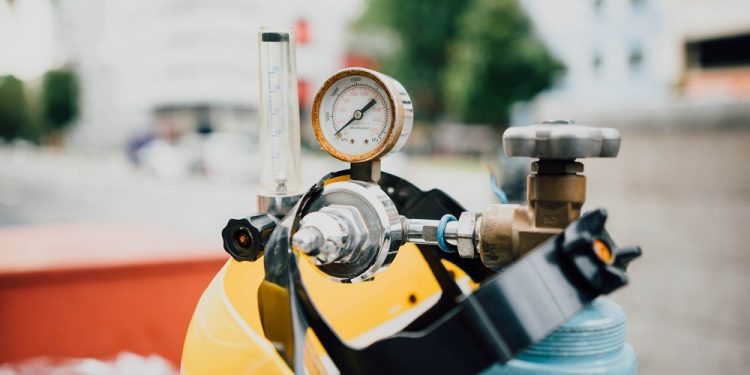Are you looking to maximize efficiency in your industrial processes? Are you familiar with specialty fasteners, control valves, damper actuators, and gas regulators? If not, it’s essential to understand how they are all interconnected when it comes to improving overall performance. These specialized components make up much of a production system’s workflow and can be instrumental in achieving faster output or machine design optimization. In this blog post, we will dive into why each is critical for optimal operations and how their integration could benefit your business long term. So whether you’re an engineer responsible for finding alternative solutions or just trying to learn more about the importance of such products in the modern industry – read on!
Understanding the Importance of These Devices
It’s vital to understand the importance of specialty fasteners, control valves, damper actuators, and gas regulators when it comes to maintaining a well-oiled machine, so to speak. Specialty fasteners keep machinery secured in its place within the structure, while characterized control valve for sale regulates the flow of liquids and gases. Gas regulator for sale prevents too much pressure from accumulating in pipes or containers, while damper actuators are used to alter system characteristics such as airflow direction and velocity. Together, these components contribute immensely to quality workflow and efficient process management.
Identifying the Benefits of Usage
If you’re looking to take your projects to the next level, utilizing specialty fasteners, control valves, and gas regulators is a great way to do so. Specialty fasteners add a degree of strength and durability that regular hardware simply can’t match, while gas pressure regulators ensure that any work performed is done under ideal conditions. Control valves are another key tool for providing accuracy and precision when working on projects. By using all three components together, professionals in various industries can guarantee that their work meets the highest standards of excellence. Ultimately, utilizing specialty fasteners, control valves, and gas regulators provides an invaluable benefit to any project – it streamlines the process while ensuring top-notch quality every time.
How to Choose the Right Type of Fastener/Valve/Actuator for Your Application
When it comes to finding the right specialty fastener, control valve, spring return damper actuator, or gas regulator for your application, there are a lot of components to research and consider. It’s important to think through all the necessary details such as size and material specifications, environmental requirements, compression ratings, service life cycles, and many other features related to your project. Knowing what type of fastener/valve/actuator best fits your application can be overwhelming. That’s why it’s always best to consult with knowledgeable professionals who possess experience in selecting the appropriate part that meets safety guidelines and quality standards. By being informed of your specific needs you can make sure that you receive the most suitable specialty components for your job.
Tips on Installing and Maintaining Industrial Processes
Maintaining a successful industrial plant isn’t easy, but there are some tips that can make it easier. Installing specialty fasteners, control valves, damper actuators, and gas regulators is essential for streamlining an industrial process. Pay attention to detail when installing these components as even the smallest deviation can make all the difference in performance. Furthermore, preventive maintenance checks should be conducted regularly to ensure these processes are running at peak efficiency. With diligent oversight and proper installation, any industrial provider can benefit from the improved productivity of specialized components!
The Impact of Poor Maintenance on Efficiency and Cost Savings
Proper maintenance of specialty fasteners, control valves, damper actuators, and gas regulators is essential for achieving efficient production at a minimal cost. Without regular checking and servicing, these key items may fail prematurely or produce below-standard results, incurring higher costs ultimately to the operation. Poor maintenance can result in decreased adaptability and scalability for a business as well as detrimental environmental impacts if not kept in check. It’s always better to be proactive rather than reactive when it comes to keeping up with the latest technologies—prevention is worth more than any potential cure! By ensuring that all components needed to maintain efficient operations are regularly checked and maintained, the impact of poor maintenance on efficiency and cost savings can be minimized while optimizing results and keeping operations on track.
Best Practices for Ensuring Maximum Efficiency in Industrial Processes
No industrial process is complete without crucial components like specialty fasteners, control valves, damper actuators, and gas regulators. These components are invaluable for ensuring maximum efficiency in operations. It is important to follow best practices when it comes to incorporating these essential items into any industrial system. That includes adhering to precise specifications and installation guidelines, constantly monitoring performance levels, testing and verifying equipment regularly, and utilizing high-quality materials that meet the exact requirements of the application. All of this will result in maximum efficiency levels and help keep your business running effectively with minimal unplanned interruptions or costly repairs.
Conclusion
In conclusion, the importance of specialty fasteners for sale, control valves, damper actuators, and gas regulators for efficient industrial processes can’t be underestimated. With the right tools and proper maintenance, you’ll be able to enjoy maximum efficiency and cost savings in your operation. It’s important to take the time to familiarize yourself with all of your options when selecting these components so that you’re sure to get something suitable for your specific application. Remember also that performance depends on how well they are installed and maintained, so make sure to follow best practices and stay up-to-date on repair or replacement needs. By investing in the right products and devoting some time to their upkeep, you can help ensure that your process runs as smoothly as possible.







